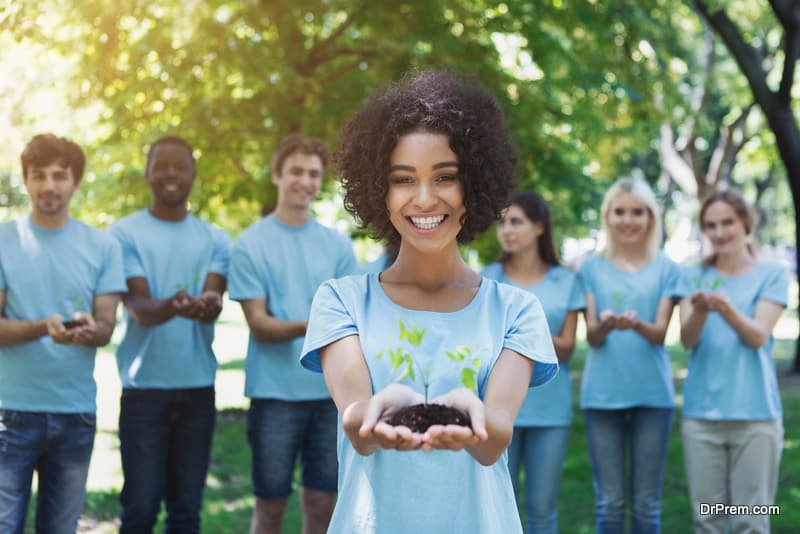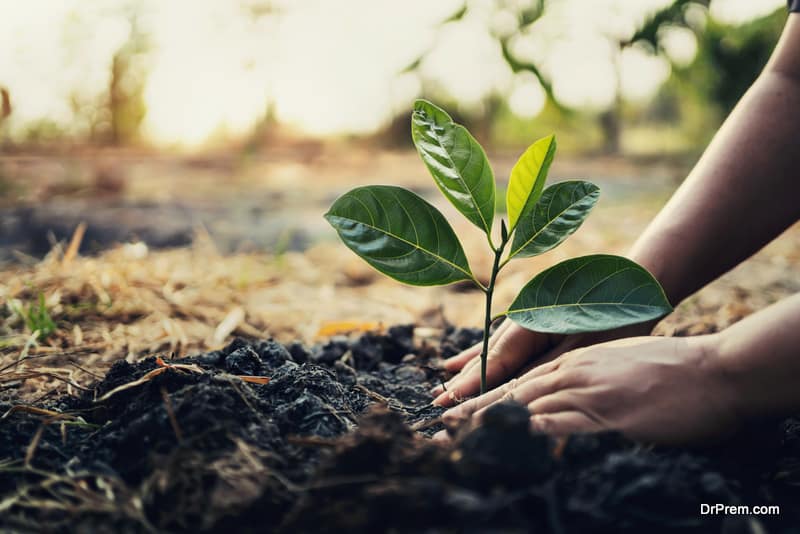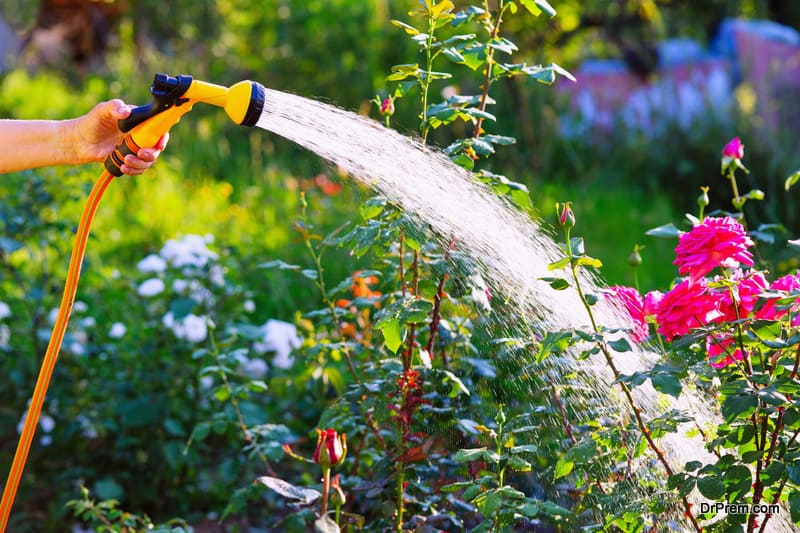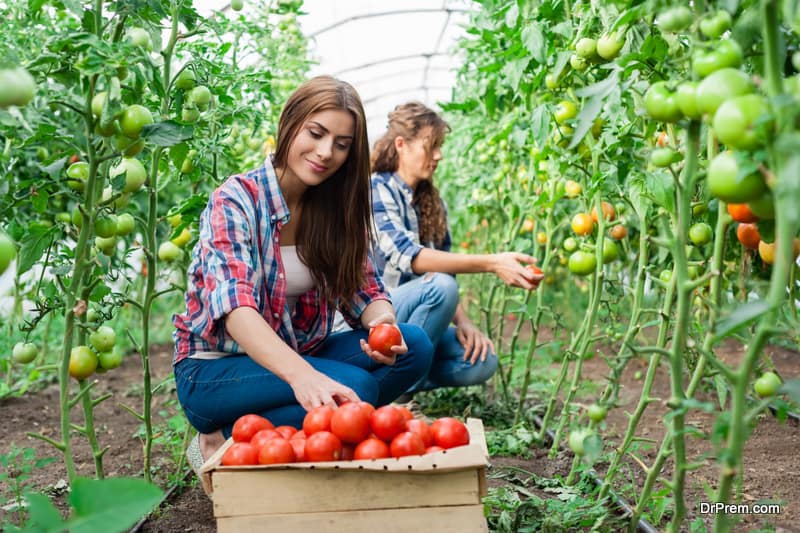Time is running out for our Earth. The rate at which we are consuming natural resources, we would need 1.7 earths to meet our demands. How can our Earth support life’s sustainability if things go this way? With our planet calling for speedy action to restore its pristine health, it’s imperative for humankind to think of ways to reduce their needs, reuse the stuff that they would find superfluous otherwise, and recycle redundant stuff into something usable before dispensing it finally. If climate change continues at this rate, it could become irreversible by 2030.
This World Environment Day, each one of us should ask some simple questions to himself or herself. Are we doing our bit to protect our environment? Can we take the lead to make this planet a better place to live for all? Are we making ample efforts to minimize pollution? If the answer to any of these questions is ‘No’, then our efforts seriously need to follow a better direction?
Here are some simple yet highly effective tips that could help you lead a guilt-free and perfectly green life. Read on to know how you can make the difference:
22 Simple Ways to Support Sustainability on Earth
-
Organize a community gathering to celebrate Earth Events
-
Conservation is the key to a greener future
-
Plant trees around home and office
-
Kill Vampire Power, the hidden culprit
-
Conserve water
-
Promote the use of locally grown organic food
-
Change your travel habits
-
Say no to harmful chemical cleaners
-
Composting helps creating natural manure
-
Prevent Soil degradation
-
Reduce, reuse and recycle
-
Avoid single use plastics
-
Buy only what you need
-
Join environmental groups, NGOs, and educate others
-
Protect wildlife
-
Use green tech and products
-
Use daylight as much as possible
-
Go digital
-
Use greywater for watering your greens
-
Minimize your trash
-
Go vegan to reduce global warming
-
Reduce factory farming
1. Organize a community gathering to celebrate Earth Events

For celebrating the World Environment Day, you can ask your housing society members to organize a community event. Such a social gathering will help raise awareness about cleanliness, environmental conscious, water conservation, and other environmental issues among all. Especially your kids will love this experience and eventually, form habits that could help protect the environment.
2. Conservation is the key to a greener future
By conservation, I mean thinking of ways to stop our environment from deteriorating further. As environment is a larger term that encompasses all flora and fauna, we should take pledge to preserve our wildlife habitats, conserve water, minimize pollution and work to improve soil health.
Deforestation and poor farming are causing more carbon emissions.2400 trees are cut down every minute. We need to promote cost-effective organic farming with low-cost natural manure.
3. Plant trees around home and office

Biophilic design impacts 17 of the UN’s Sustainable Development Goals (SDG)
Biophilia means incorporating elements of nature into our surroundings. We definitely need to greenify our abodes and official premises. By planting trees around our homes and offices, we can support the cause of World Environment Day. With shady trees and a greener environ to complement our living spaces; we can help planet earth combat global warming.
4. Kill Vampire Power, the hidden culprit
Do you know how power leakage happens from our daily habits? Vampire Power costs American consumers more than $3 billion a year.
Instead of considering it just a tip for celebrating WED, we should make it a habit to save electricity. Furthermore, we should opt for renewable energy sources as it enables mother earth to breathe free. So, we should make it a point to unplug our devices when not in use. In doing so, we can minimize energy wastage.
5. Conserve water

With more than 1.2 billion people around the world lacking access to potable water, we can teach our kids and even grownups various ways of conserving water. Potable water that goes down the drain is a perishable commodity. While it may be something superfluous for us, it is better we should start thinking about those who are dying because of thirst in almost every country of the world. Furthermore, check for tap leakages.
6. Promote the use of locally grown organic food
The World Environment Day is not just an occasion to make pledges to protect the planet; instead, it’s a wakeup call for those who do nothing substantial to reinvigorate the health of our planet. A simple method to lead a green life is to use locally grown organic food. When we use locally grown organic food, we actually say no to vehicular emissions that could have their immense carbon footprint. Organic food further comes with the goodness of purity as farmers don’t use chemical fertilizers for growing them.
7. Change your travel habits

From this World Environment Day onward, try to manage your travel schedule in such a way that those unnecessary trips should find no place at all. Furthermore, for short distance journeys, you can always prefer biking rather than burning fuel all the time. Use carpooling options to travel to office or other places.
1 out of 5 deaths in the world are caused by fossil fuel emissions. More than 8 million people died in 2018 from fossil fuel emissions, and transportation causes the maximum emissions, which is 29%. Drive less, walk more.
8. Say no to harmful chemical cleaners
Chemicals are polluting almost everything around us. We should reduce the use of chemical cleaners, pesticides and other harmful substances by switching to safer alternatives. Chemical cleaners leach into soil and our water resources; thus, making them unfit for cultivation and human use respectively.
9. Composting helps creating natural manure

Instead of tossing waste around thoughtlessly, we should promote composting by setting self-example for others to emulate. Composting helps disintegration of solid and liquid waste into natural fertilizer that could be used in organic farming.
10. Prevent Soil degradation
3.4 tonnes of soil are lost every year for every person on the planet. Losing soil means losing contact with healthy organisms vital for our wellbeing. Educate communities, farmers, corporations, and households about soil-preservation practices.Hydroponic farming is gaining worldwide popularity that teaches rational use of water and other resources.
11. Reduce, reuse and recycle
![]()
We should reduce our reliance on perishable and limited resources, aside from reusing stuff in all possible ways before we finally decide to flush them down the sewers or put them in dustbin. Furthermore, we must recycle plastic, electronics, and almost everything possible into some reusable stuff.
12. Avoid single use plastics
Single use plastics is causing more environment damage than we can think of. There is none denying the fact that polythene and plastic bags are a menace to our environs. When we say no to plastic bags, we actually take the first step toward minimizing the level of pollution. Instead of carrying things around in such bags, it’s always a saner proposition to use bags made from cloth.
13. Buy only what you need

We do need to reduce our needs to ensure that we are not an unnecessary burden for the planet. Most of us are habitual of buying just anything that meets our eye even without considering whether we need it or not. When we develop the habit of checking our purchases, our chances of buying needless stuff go down considerably.
14. Join environmental groups, NGOs, and educate others
Join environmental groups and organizations within or outside your vicinity. You would sure find several non-governmental, governmental and intergovernmental organizations that are making efforts to preserve, conserve, and beautify the environment. By joining such organizations, you can learn how to protect natural habitats and lead a green life.
Various non-governmental organizations are doing fabulous job in educating others about how to be a part of the green movement. We must join such organizations and ask others to participate in several environmental projects, programs, and activities organized by them.
15. Protect wildlife

In order to promote biodiversity and conserve natural habitat of animals, it’s important to protect wildlife. We can achieve this goal of ours by checking unregulated poaching and hunting.
16. Use green tech and products
Instead of craving to lay your hands on those costly but lesser environmentally friendly gadgets, devices, and technologies, consider weighing them on the scale of sustainability and then, make your decision. Green devices and gadgets that utilize wind, solar and other renewable resources of energy are the need of the hour. Similarly, scientists and researchers worldwide are doing tremendous job in making modern tech more energy efficient than ever before. Look for green quotient rather than basing your purchasing decisions on style quotient of products.
17. Use daylight as much as possible

Power conservation needs to be taken seriously. Most homeowners prefer staying indoors most of their time while keeping their doors and windows closed to the outside world. In doing so, they needlessly consume more energy for lighting their interiors and maintaining the temperature of their living spaces. Allow the daylight to seep in through those windows and doors; it will help you minimize your expenses on lighting.
18. Go digital
Governmental and private organizations around the world are going paperless to minimize their impact on trees that are felled for manufacturing paper. In going digital, such organizations are doing commendable job, which is undeniably good for the planet.
19. Use greywater for watering your greens

You can always use greywater to water ornamental plants, fruit trees, houseplants and landscaping. Well, if you don’t like this idea, consider flushing your toilet with it.
20. Minimize your trash
Agreed that none of us does it intentionally; nonetheless, most of us don’t even think of making more efforts to minimize the trash. Instead of showing the inclination of labeling something as unusable and trashing it eventually, we should be considerate enough to lend it to someone so that it could be of some use to someone. Some gifted artists make mesmerizing art from things that we never think twice before throwing them away. After all, one’s trash could be someone’s treasure.
21. Go vegan to reduce global warming

Being vegetarian helps you minimize your carbon footprint. By going vegan, a person can save around 30 square feet of forested land, 1,100 gallons of water, and around 45 pounds of grain. Most importantly, veggies save one animal’s life every day, which indeed is a noble cause for sure!
22. Reduce factory farming
Factory farming can raise global warming by 20%. Global meat production accounts for 60% of emission in food production. Every 6 seconds, one acre of rainforest is cut down for cattle farming. Did you know vegan meat can cut down greenhouse emissions by 96%.Promote consuming lab-grown meat.
Thus, this World Environment Day, we would request our readers to make these simple changes to their lives, which would eventually help them greenify our planet.


